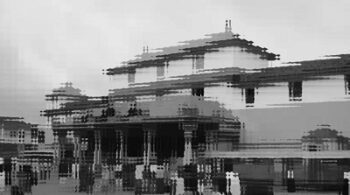
AP & Telangana State Head – Anandam Dundi:
Bengaluru: After months of reluctance and rising public pressure, the Karnataka government has finally constituted a Special Investigation Team (SIT) to investigate chilling allegations of mass graves, disappearances, and crimes against women in Dharmasthala, a prominent temple town in Dakshina Kannada district.
The move comes in the wake of shocking revelations by a former sanitation worker, who testified under Section 164 of the Criminal Procedure Code that he had buried hundreds of bodies, including women and minors, around the Dharmasthala temple over a period of nearly two decades. The testimony, which gained national attention, sparked outrage and demands for an impartial probe. Despite the intensity of the issue, the government initially refused to form an SIT, drawing heavy criticism from activists, opposition leaders, and the State Commission for Women.
A government order issued on Saturday confirmed the formation of the SIT to handle all cases registered under the Bharatiya Nyaya Sanhita (BNS) at the Dharmasthala Police Station and related cases across Karnataka. The SIT will function out of the Dakshina Kannada district police office and is tasked with submitting regular progress updates to the state police chief.
The team comprises: Pranav Mohanty, DGP, Internal Security Division (Team head), M N Anucheth, DIG, Police Recruitment, Soumyalatha, DCP, City Armed Reserve (CAR), Jitendra Kumar Dayama, SP, Internal Security Division.
The SIT’s formation followed a formal request from the State Commission for Women, which urged Chief Minister Siddaramaiah to constitute a high-level team to investigate decades of alleged rapes, murders, and disappearances involving women and female students in the region. The commission’s letter, dated July 14, cited media reports and testimonies from grieving families and a laborer who claimed to have buried over 100 bodies under coercion.
Initially, however, Chief Minister Siddaramaiah appeared dismissive. Speaking to the press, he said:
“This person has been absconding for 10 years. He has now given a statement under CrPC 164. He says he buried bodies and is ready to show the locations. Let’s see what the police say.”
Following this, lawyers representing the whistleblower submitted a memorandum to the Chief Minister, expressing serious concerns about alleged police collusion, information leaks, and intimidation tactics. These concerns, along with growing public outrage and media scrutiny, compelled the government to act.
Meanwhile, Communist Party of India (CPI) Rajya Sabha MP P Sandosh Kumar had already written to Union Home Minister Amit Shah, demanding that the investigation be transferred to the National Investigation Agency (NIA). In his letter, Kumar flagged reports of “a high number of unnatural deaths” and alleged a disturbing pattern of crimes against women in Dharmasthala between 1995 and 2014. He emphasized that a central agency with full autonomy was essential to uncover the truth and ensure justice.
The CPI M, however, has been vocal about the issue for over a decade. In 2013, the party organised a march from the home of 17 -year- old Sowjanya, who was raped and murdered in Dharmasthala. The protest was led by veteran leader U B Lokayya, who had also campaigned for justice in the 1987 rape and murder of another 17 -year -old girl, Padmalata. Lokayya recalled that efforts in both cases were systematically crushed by influential forces shielding the accused. CPI M activist B M Bhat added that defamation cases were even filed against victims’ families to suppress their voices.
Dharmasthala, known for its revered Manjunatha temple, is now under nationwide scrutiny as more survivors and witnesses come forward, alleging years of sexual violence, land grabs, and targeted attacks on Dalit families. Activists claim that many of the killings occurred in broad daylight and were covered up with impunity.
Powerful local family, the Heggades of Dharmasthala, has long held religious and cultural authority in the region. Its head, D Veerendra Heggade, was nominated to the Rajya Sabha by the BJP in 2022 and took his oath as a Member of Parliament.
Despite being at the center of the allegations, the family has not responded publicly. Their influence, bolstered by support from both state and central governments, has made it difficult for victims and witnesses to come forward. However, more individuals are now reportedly willing to testify, despite facing threats and social ostracism.